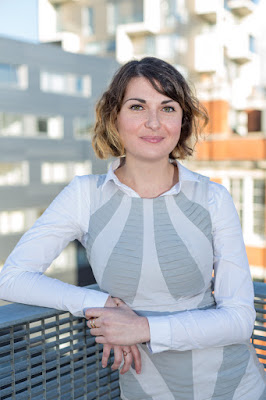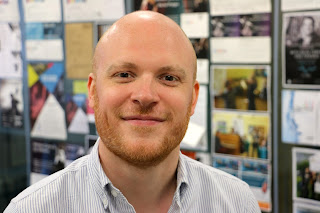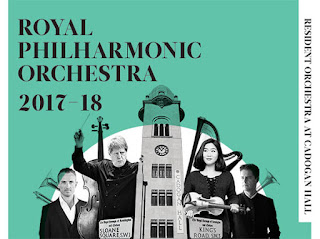In 2016, the British-Iranian composer Soosan Lolavar was studying in the USA (on a Fullbright Scholarship at Carnegie Mellon University) during the Republican Primaries. With the rise of Trump and the rising tide of disturbing anti-immigration rhetoric, she wanted to do something political and started to talking to librettist Daniel Hirsch. They talked about doing a Trump piece but dismissed the idea, thinking he would drop out. And Lolavar adds that she is thankful she did not end up spending 'a year inside Trump's mind'. Instead they came up with ID Please which premiered at Pittsburgh Opera in April 2017, and receives its UK premiere as part of Tete a Tete: The Opera Festival at The Place, London on Tuesday 25 July 2017.
Soosan has two passports (British and Iranian) and borders are an ambivalent part of her life. So
ID Please is a 40 minute piece with three characters, a border guard and two travellers, these latter two are ciphers representing a whole range of people. The piece is structured with three arias, three interludes and interrogations. The travellers are constantly being asked questions by the border guard but their answers shift, as they represent everyone who could pass through the border.
 |
| Soosan Lolavar |
Soosan feels that though she was influenced by her Iranian heritage, it is not in the way that people will notice. She uses no Iranian instruments and no typical Iranian tuning (Iranian music uses microtones). But Iranian music is mainly improvised and the pulse is very flexible. And these are the aspects which she has used in the opera. There is rarely a set pulse and no two bars have the same time signature. She feels that this brings a feeling of instability reflective of borders. In Iran, melodies are memorised and then Iranian musicians improvise, so what you hear is new but with the outline of the original.
In the opera there are lots of repeated lines (questions and answers) and each time the details of the melody changes but not the overall contour so the listener can spot the influence. She does use microtones in the opera but conventional quarter tones rather than the Iranian specific microtones.
As the work was written for a university orchestra it was not possible to use Iranian instruments, though Soosan is not a fan of tokenistic use of such instruments. But this is something she has tried in the past, and would like to explore in the future though it is difficult.
Whilst rehearsing the opera early this year, Soosan had an unnerving experience of life echoing art. She was preparing to return to the USA when Trump's first travel ban came into place, chaotically applied, those with dual nationality were caught up in the event and Soosan was unable to travel. In the event, the British government negotiated a special deal for British nationals, though if she had had another nationality she would have been stuck.
Planned the year before, the opera was about the real world, but with an element of dystopia. A worst case scenario which came true. The incident gave them so much energy and she realised that the piece became the most important she had written. She hopes that the opera will get further performances, she has already been contacted by an American opera company. It is her dream to take the piece to Europe, in particular Germany with refugees being so much at the forefront of politics.
Soosan is currently doing a PhD at City University, on contemporary composers in Iran, how Iranian composers combine Iranian and Western influences, and is looking at the social and political aspects too.
Looking ahead, on 5 August Soosan has a piece being performed at
a festival in Oviedo, it is called
Girl and based on the Iranian folk-song
Dokhtare Boyer Ahmadi. And
The Hermes Experiment is
touring Scotland and including a piece by Soosan where the harp is de-tuned to Iranian tuning, and the sing sings in Farsi drawing on both Iranian music and Renaissance polyphony and the surprising links between the two.


































%20and%20kids.jpg)
.webp)




.jpg)
